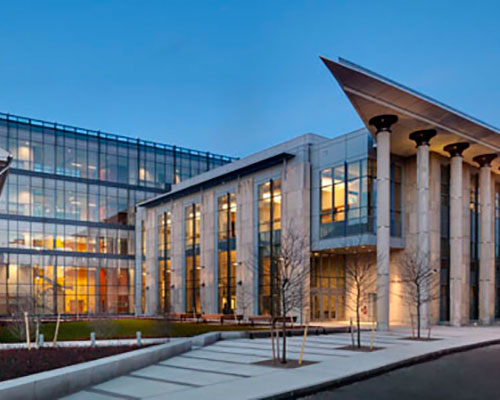A court last week ruled against the developer of a 50-lot housing project who claimed he should be able to finish the subdivision even though he did not build a city-required water booster pumping station.
In a decision received by the city last Wednesday, Essex County Superior Court Judge Christopher K. Barry-Smith decided Michael Maroney and Maroney Construction Co. did not comply with city requirements when building his Crystal Springs development. Haverhill Mayor James J. Fiorentini told WHAV Maroney simply didn’t keep his promise.
“This is something that was agreed to, and that’s what the court said. They agreed to this at the Planning Board level, they agreed to fix the infrastructure and the court said, once you agree to it, you have to do it, and they didn’t do it,” the mayor said.
In 2009, Planning Board members approved the project provided a water booster pumping station be built to ensure adequate water pressure and fire hydrant flow. Based on Maroney’s agreement, the Planning Board favorably recommended the proposal to the City Council. Councilors approved the project with those conditions that spring.
Later that year, Planning Board members agreed part of the project—16 lots on a new street, Back Nine Drive—could go ahead without the booster station provided the particular lots could receive adequate water pressure without the booster. Those first houses were built and sold, but the city’s Water Division said during the fall 2012, new homes along another street, Front Nine Drive, could be built only if there was progress on constructing the booster station.
After Maroney built 13 more houses, the city told the court, he still failed to construct the required station. Despite lacking permits, the city charged, Maroney began building four more homes on certain lots a city consultant said required the booster. Upon orders from Building Inspector Richard Osborne, construction stopped three years ago. The mayor backed his department heads.
“The Board of Appeals, the Planning Board, the building inspector—they all did the right thing. They followed the law, and that’s what the court upheld,” he said.
Judge Barry-Smith didn’t buy Maroney’s argument that his own consultant said later the water booster station isn’t necessary.
“Whether actually true or not, the argument is without merit,” the judge ruled. “When the Planning Board approved the definitive subdivision plan, it determined, based on then-available data and evidence, that, in order to provide adequate water pressure and water flow to hydrants, the booster station was required. Maroney agreed…,” he decided.
The mayor warned Maroney could still ask a court to overturn the decision. “This isn’t necessarily the end of the case. They still have rights to appeal, etc. We’ll see where it goes from here.”
Fiorentini, though, has asked City Solicitor William D. Cox Jr. to see if the city can get Maroney to pay back the city for “several hundred thousand dollars in legal fees.”

